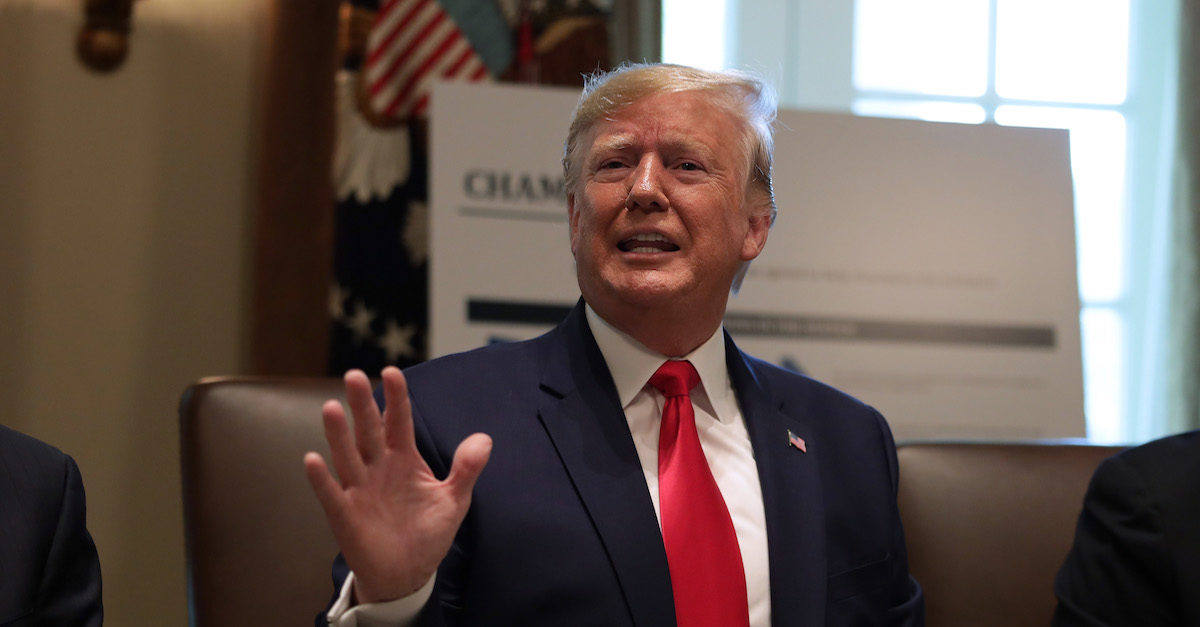
In the wake of the U.S. airstrike that killed Iranian Maj. Gen. Qassim Soleimani, the Trump administration barred Iran’s top diplomat from entering the country to attend an upcoming security council meeting at the United Nations headquarters in New York.
The decision to prevent Iranian Foreign Minister Mohammad Javad Zarif from obtaining the visa he requested “a few weeks ago” violates the terms enshrined in the 1947 Headquarters Agreement, Foreign Policy magazine reported, citing three diplomatic sources. The agreement requires the U.S. to allow foreign officials entry into the country for the purpose of conducting U.N. business.
Per the report, Zarif had requested the visa in order to attend a Jan. 9 Security Council meeting pertaining to the importance of upholding the U.N. charter and would have provided Zarif with a global stage to address the drone strike ordered by President Donald Trump that eliminated Soleimani, the commander of Iran’s Islamic Revolutionary Guard Corps-Quds Force. The Trump administration designated the IRGC a foreign terrorist organization in April.
This is not the first time the Trump administration has denied admission to the U.N. due to foreign policy conflicts. Foreign Policy magazine reported in November on similar actions taken by the administration:
Representatives from the U.N. delegations of China, Cuba, Iran, Nicaragua, North Korea, Russia, and Syria say their diplomats and support staff are subjected to increasingly restrictive travel limitations, arbitrary denial of visas and driver’s licenses, additional airport security checks, and curtailed access to banking services needed to conduct their diplomatic work and pay their dues at the U.N., according to a report by a U.N. committee that monitors U.S. dealings with the U.N.’s 192 other states.
Those measures, they contend, violate the host country treaty, or Headquarters Agreement, signed by the United States in 1947. In many cases, the U.N.’s lawyers agree.
It should also be noted, however, that this maneuver is not new for U.S. presidents of both parties (see: Section 6, “Nothing in this agreement…). Former President Barack Obama’s administration in 2014 denied a visa to Hamid Aboutalebi, Iran’s “would-be Ambassador to the United Nations,” citing security concerns, as Lawfare noted at the time:
Over the years, Administrations of both parties have relied on the Section 6 security reservation to deny visas to persons coming to the U.N., including other Iranian nationals who had been involved in the 1979 hostage crisis The most famous and controversial case was in 1988 when the [Ronald] Reagan Administration invoked the security reservation to deny a visa to PLO Chairman Yasir Arafat.
Zarif has railed against the Trump administration on Twitter since last week’s drone strike, calling it as an “act of international terrorism,” mocking the president’s words, and referring to U.S. Secretary of State Mike Pompeo as a “clown.”
[image via Alex Wong/Getty Images]